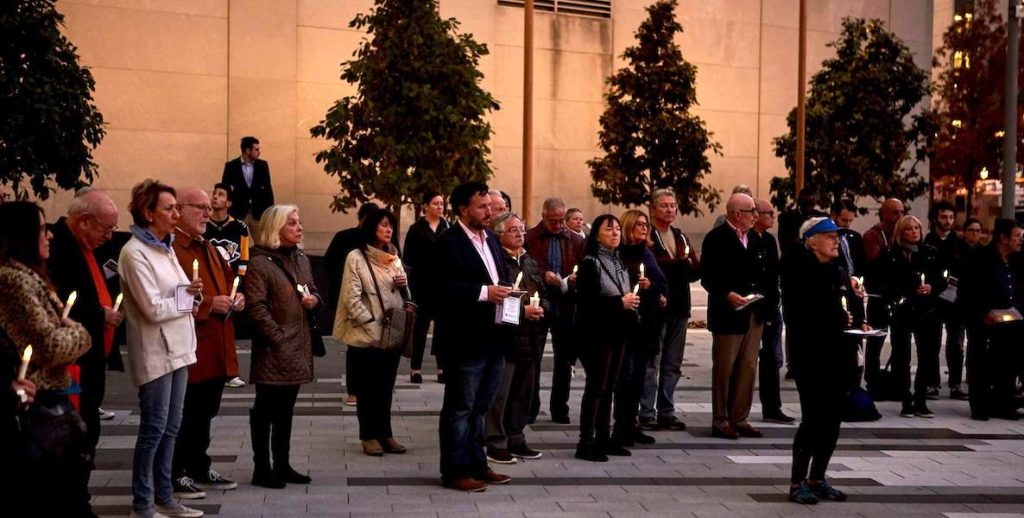The brutal physical atrocities of the Holocaust are widely known. Less known, however, are the lengths the Nazi regime went to eliminate forms of intellectual and creative dissent. Key among them: On May 10, 1933, Nazi-run student groups across 34 towns throughout Germany burned books they claimed to be “un-German”—including books by Jewish, liberal, and leftist authors.
In the spirit of both remembering this horrifying desecration—so that, as the refrain goes, we may not forget—and honoring change and growth instead, the Philadelphia Holocaust Remembrance Foundation (PHRF) will hold a Covid-safe, outdoor gathering at the Horwitz-Wasserman Holocaust Memorial Plaza on May 10th, from 4 to 5pm, at which elected officials, community leaders—like Citizen co-founder Larry Platt—and students will read excerpts from banned authors, as well as historical and current pieces that explore the importance of fighting racism, antisemitism and bigotry in all its forms. Books will also be given away, while supplies last.
“We hoped that, through this event, we could flip history on its head: In contrast to the Nazi book burnings of 1933—the ultimate aggression against opinion, creativity, and the arts—we will celebrate those very things,” explains Eszter Kutas, Philadelphia Holocaust Remembrance Foundation’s (PHRF) executive director, a Budapest native whose four grandparents are all Holocaust survivors. “By coming together as a community, we’ll be able to reflect on how voices have been marginalized and amplify those that promote tolerance.”
“It’s important to remember that the Nazi crimes didn’t start with concentration and death camps—they ended there,” Kutas says.
This will be the first time the organization is hosting a May 10th commemoration; perhaps more than ever, it feels particularly necessary.
“It’s important to remember that the Nazi crimes didn’t start with concentration and death camps—they ended there,” Kutas says. “We hope that participants in this event will walk away understanding this aspect of Nazi censorship and oppression, and how the road to the horrors of the 1940s was paved by Nazi actions of the 1930s, including censoring speech and limiting scientific and artistic expression. In our current climate, it is increasingly clear that misinformation spreads like wildfire—often more quickly than actual facts.”
Free books for a wide age range of readers will include but not be limited to The Diary of Anne Frank; Night by Elie Wiesel; Malala’s Magic Pencil by Malala Yousafzai; and How to be an Anti-racist by Ibram X. Kendi. “We wanted to be sure to have titles that explore the history of the Holocaust and other forms of racism, as well as a selection of books that highlight and celebrate creativity, freedom of expression, and tolerance,” Kutas says.
Speakers will include not only Platt but Councilembers Allan Domb, Jamie Gauthier, and Derek S. Green, City Controller Rebecca Rhynhart, and Parks & Rec Commissioner Kathryn Ott Lovell, as well as Shira Goodman, regional director of the Anti-Defamation League and Madeleine Kessler, board member of PHRF. The event is presented in partnership with The Philadelphia Citizen as well as Friends Select School; middle and high school students from Friends Select will join in reading excerpts from the books.
“The social media age has really stressed the importance of media literacy,” Kutas adds. “We’re hoping to remind participants how important the free exchange of ideas is, past and present.”
May 10, 4pm-5pm, Horwitz-Wasserman Holocaust Memorial Plaza, 16th Street at Benjamin Franklin Parkway

